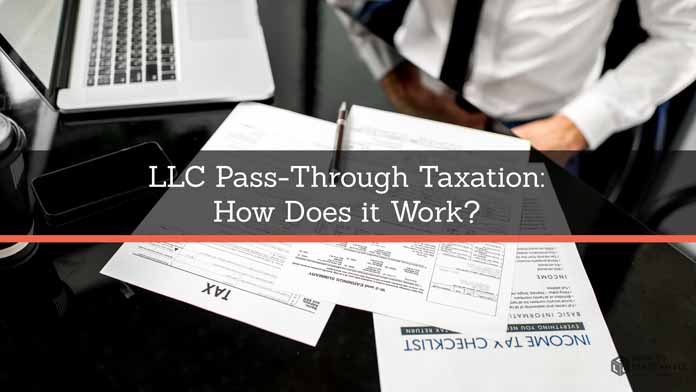
In business planning, limited liability companies (LLCs) stand out for their flexibility and beneficial behavior. One major factor that often attracts entrepreneurs and investors is the pass-through tax rate for LLCs. Let’s take a look at what the LLC pass-through tax entails and how it can fine-tune your budget
What is LLC Pass-Through Taxation?
LLC pass-through taxation refers to the unique treatment of an LLC’s income for tax purposes. Unlike a corporation, an LLC itself is not taxed as a separate entity. Instead, gains and losses go to “take” the business and are reported on the individual tax returns filed by the LLC owners, also known as the partners. This means that the LLC does not pay its corporate income taxes. Instead, the LLC pays its fees and expenses and the members pool its balance and pay taxes on that income.
This happens regardless of how you distribute the LLC’s funds at the end of each year. So, although you retain that money in your bank account, individual members have to report that as their income.
How Does It Work?
Income Flow-Through
In a Limited Liability Company, income attracts no business taxes; instead, it flows into personal tax returns of the members. This is aimed at ensuring that every member reports his/her profit or loss share on the personal tax returns thus making it easy for a member to understand what he/she owes in form of taxes.
Proportional Distribution
The classification of profits and losses between members in an LLC is based on their ownership percentages. This type of classification reflects their investments in a company and the principle of fairness and alignment of interests. LLPs call for an approach that encourages shareholders’ active participation in the company’s success by directly relating dividends to equity thereby developing shared responsibility.
Avoidance of Double Taxation
One issue commonly brought up against C corporations is double taxation which can be circumvented through passthrough taxation. In C corps, profits are taxed at corporate level then taxed again when distributed as dividends to shareholders.
Flexibility in Allocation
Among the LLC members, there is flexibility regarding the division of profit or loss. In addition, this flexibility allows individuals to make better tax plans depending on their unique financial situations. Therefore different profits and losses can be attributed according to certain needs and preferences with respect to a person’s tax obligations.
Benefits of LLC Pass-Through Taxation for Investment Consultation
Tax efficiency
Pass-through taxes can provide tax advantages especially for high-income individuals. Personal income may have lower rates than corporate revenues therefore reducing overall taxable amount.
Flexibility in loss deductions
Members can offset operating losses against other sources of income, potentially reducing their overall tax liability.
Attractive to investors
A pass-through arrangement can be attractive for investors because they will receive benefits directly from the project’s success without being double taxed.
Adaptability to Investor Preferences
As LLCs can assign profits and losses differently among members, they can adjust distribution patterns meeting investor preferences or needs.
Simple Administration
In general, compared to corporate structures, LLCs have simple administrative requirements, which makes them more popular for small businesses and start-ups.
Conclusion
Financial advice begins with understanding how a business plan affects taxation. Majority of investors prefer a limited liability company pass-through tax because it is a favorable option when it comes to taxation issues. Therefore, opting for this scheme allows businesses and investors maneuver complex tax processes while maximizing their financial results.
Contact M&A Wealth for personalized investment consultation that takes advantage of LLC tax pass-through. Our experts will guide you through the difficulties of restructuring your business so that you yield maximum returns on investments.